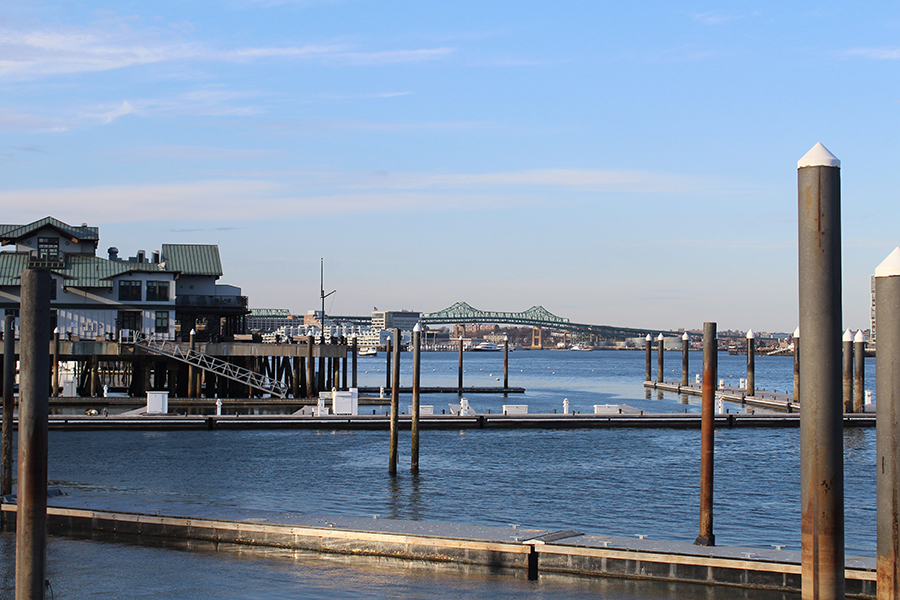
The Massachusetts State Senate passed a bipartisan resolution Tuesday challenging possible oil and gas drilling in New England waters.
Coauthored by Sen. Mike Barrett and Sen. Bruce Tarr, the document calls to “exempt” the New England coast from any oil drilling actions. It also calls for energy diversity, but that this should not come at the cost of the economic and environmental “importance” of the waters.
The resolution came just before a meeting Tuesday called by the Bureau of Ocean Energy Management where the public was allowed to give their opinion concerning a proposed Federal oil and gas drilling lease program the Bureau is reviewing.
The BOEM is seeking environmental permits for its Jan. 9 draft plan to reopen fossil fuel exploration off nearly every coastline along the continental U.S. and Alaska. Mar. 9 is the deadline to submit public comments on the draft leasing document.
Barrett said in a press release that the U.S. holds excess oil and natural gas resources, deeming the drilling unnecessary.
“In terms of Massachusetts’ and New England’s values, this is one terrible idea,” Barrett said. “This threat of environmental and economic devastation to our part of the nation could not be more pointless, nor more disrespectful to the traditions of the region.”
Emily Norton, chapter director for the Massachusetts Sierra Club, an environmental protection agency, wrote in an email that drilling in New England waters would devastate the ecosystem.
“We should be getting off fossil fuels[,] not increasing reliance on them,” Norton wrote. “… Offshore drilling threatens our tourism, recreation and fishing industries. We know when there is drilling there is spilling, sometimes catastrophically, so this move would cause irreparable damage to our environment and economy.”
Norton wrote that authorities should disband offshore drilling altogether.
“I hope that the Federal Government will remove Massachusetts from the list of states subject to this offshore drilling plan,” Norton wrote. “… indeed, we believe no states should have expanded offshore drilling off their shores.”
President Donald Trump called for more offshore drilling and energy exploration in the Outer Continental Shelf in an executive order issued in April 2017.
Alex Vai, the campaigns coordinator for the Massachusetts Chapter of the Surfrider Foundation, an organization striving to protect oceans and beaches in the state, said while there’s no such thing as a perfect plan that will make everyone happy, the administration must make a decision that will protect the earth’s environment.
“You can start from the basic idea that as a society, what we really need to be doing is … moving more away from … depending on fossil fuels,” Vai said. “From that fundamental starting point, expanding the oil and gas drilling makes no sense … Even when everything goes right, you’re talking about thousands of tons of chemical discharges, and you’re talking about seismic surveys that can harm wildlife.”
Vai said the BOEM should seek ways to have more public opinion to inform better decision-making.
“This particular plan, they’re not reaching out in the same way to get the full public feedback that something of this magnitude really should have,” Vai said. “We’d really like to see BOEM do a better job of making official public hearings and giving more opportunities for the public to speak up — especially with something that poses an existential threat to change the way of life for a lot for coastal communities.”
Jenna Gabe, 27, of Back Bay, said the administration needs to strike a balance between extracting fundamental assets and protecting the ecosystem.
“I know that drilling into the ground for oil has been horrible in the past with catastrophic events such as the BP oil spill,” Gabe said, referring to the 2010 event, which is considered the largest marine oil spill in history. “Is it really worth it to try and get those precious resources, or is the environment worth more? That’s the question.”
The resolution asks the Administration to refrain from drilling off the coast, specifically at surrounding Georges Bank, Stellwagon Bank and Jeffreys Ledge.
Linda Gallup, 54, of Back Bay, said Barrett and Tarr are playing a crucial role in safeguarding the climate.
“The environment, the water, the plants, the animals, the air we breathe every day — that’s all essential,” Gallup said. “This kind of move — typical coming from the current administration — is less than ideal. I’m glad these senators are stepping up and doing the right thing during a time when we most need people in power to step up for what’s right.”
CORRECTION: A previous version of this article included a comment from a Jamaica Plain resident. The quote was removed due to incorrect attribution to his name. An updated version of this article reflects this correction.


















































































































Sara • Mar 1, 2018 at 3:33 pm
I think that this is a wonderful example of the power that individuals can have when they band together. Preventing this drilling in Massachusetts sets the stage for other possible rejections of fossil fuels, paving the way for more renewable energy use. The shift towards renewable energies and away from fossil fuels continues to be a slow transition, as these green companies face continual pushback from those industries that profit from the earth’s exploitation. As of 2015, renewable energy sources only account for 26% of the global energy usage, as expanded upon in this article https://www.iea.org/about/faqs/renewableenergy/ . As a culture, we need to learn to prioritize the environment over financial gains. Without the planet, what use is money? Without the planet, where would the capitalists and environmentalists argue? The earth is the foundation on which the rest of society is built-its preservation requires us to reject ideas that exploit the environment for financial gain, which Massachusetts is doing a fantastic job of demonstrating.